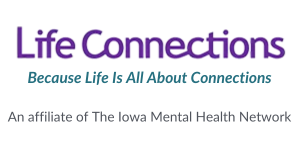Loving someone with a substance use disorder is one of the most difficult things you may ever do. It is classified a disease, but can feel like a choice to those watching their loved one putting substances first. It is sadness, anger, and confusion – all at the same time.Working in the substance use field for a number of years, teaching family groups, having 22 years of sobriety myself, having addicted loved ones, I have learned, through trial and error, some things that can help.
Don’t Take it Personally
When a loved one relapses, or even if they have never quit using, it can feel as though they don’t care about you. “Why would they do this knowing how much it hurts me?” or “Why can’t they put their children first?” These are questions that are often asked by the family of an addicted loved one. It is important to remember that it is not about you. This can be the addiction raging out of control at that time and may have absolutely nothing to do with how much they care for their family. The more the loved ones quit internalizing the addictive behaviors, the more the anger and hurt will lessen, and room for healing can begin.
Set Boundaries
People in active addiction can have some actions that infringe on their loved one’s lives. Stealing, lying, and broken promises are most common. If boundaries are not set and then adhered to, the person with the SUD can consume everyone around them into their turmoil. Setting firm boundaries and sticking to them is crucial to helping. They may say they hate you, and may even quit talking to you while they’re using, but they will thank you later when they get sober.
Love, Love, Love
While setting boundaries, it is important for your loved one to know that you love them no matter what. Showing this by telling them even when they are actively using is very important. Your voice letting them know someone cares may be the only thing that gets them thinking about getting sober. Addiction is such a dark world, be their light by letting them know you love them unconditionally.
Support Groups
It can be beneficial for those who love someone with a substance use disorder to feel like others understand what they are going through. Nobody understands better than others going through the same thing. Al-Anon and Nar-Anon are both groups that are for the families of loved ones with an SUD. This is a place to vent frustration while learning from others what worked for them. It is just for the families of loved ones with an SUD, and is a safe space to open up. al-anon.org is a great place to search for groups in your area, many even meet virtually, so transportation need not be a barrier.
Jyll Newell, BS, CADC, Licensed Substance Use Counselor
Because Life is All About Connections
Life Connections provides in-home Behavioral Health Intervention services, Therapy services, autism (ABA) services and Children’s Mental Health waiver services in our 13 office locations and approved schools across Iowa. Life Connections was founded in March of 2009 with the intent to serve the children and families of Cedar Rapids and surrounding cities.
Life Connections is a highly professional and caring counseling and behavioral health provider. We offer a wide array of services to treat mental health issues including Applied Behavior Analysis Services, Behavioral Health Intervention Services, mental health therapy, school-based therapy programs, and substance use treatment.
For more information, please call 319-409-6922.
Resources:
- National Suicide Prevention Hotline 800-273-8255
- Crisis Text line text to 741741
- The Trevor Project – for LGBTQ+ young adult community 866-488-7386
- Rape, Abuse, and Incest National Network 800-656-4673
Start Your Services
Start Mental & Behavioral Health Services with Life Connections | Because life is all about connections.

